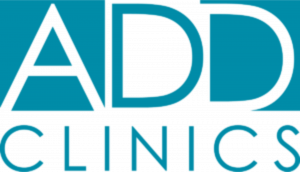ADD Clinics Provides ADHD Testing Services for Teens Experiencing Academic Challenges
Led by Dr. Stanford Owen, ADD Clinics focuses on identifying attention-related conditions that often go undiagnosed during a student's critical developmental years. The clinic’s assessment process evaluates a range of cognitive and behavioral factors to determine whether attention deficit hyperactivity disorder (ADHD) is a contributing factor to academic underperformance.
"Many teenagers with undiagnosed ADHD are labeled as lazy, disruptive, or disinterested," said Dr. Owen. "In reality, the condition often impairs their ability to stay organized, complete tasks, and retain focus—especially in environments with high sensory input or frequent distractions."
The evaluation protocol used at ADD Clinics includes a combination of diagnostic interviews, clinical rating scales designed specifically for adolescent age groups. These assessments help establish whether the symptoms align with ADHD criteria or if other conditions—such as anxiety, depression, learning disabilities, or environmental factors—are contributing to the student’s academic difficulties.
Dr. Owen noted that teens with ADHD often display a different symptom profile than younger children. While hyperactivity may decrease with age, impairments in executive function, time management, and impulse control often persist or intensify as academic demands increase. Often bipolar disorder becomes more apparent in later teens.
"Teenagers face a unique combination of cognitive development and social pressure," Dr. Owen explained. "ADHD can make it difficult to regulate attention, prioritize assignments, or maintain motivation in the face of increasing academic complexity."
The clinic also works with families to gather input from teachers, school counselors, and academic records to build a comprehensive understanding of the student’s challenges. By collecting observations across multiple settings—home, school, and social environments—the team aims to provide a well-rounded clinical picture before any diagnosis is considered.
Testing appointments are typically completed in a single session and results are reviewed in detail with families, including written reports and recommendations. If ADHD is diagnosed, the clinic offers guidance on potential next steps, which may include behavioral strategies, academic accommodations, or referrals for further support.
"An accurate diagnosis is not about fitting a student into a label," Dr. Owen said. "It’s about identifying the root cause of performance issues and providing a clear path forward based on data, not assumptions.” Often direct counseling is also very helpful.
In addition to ADHD evaluations, the clinic offers screening for related conditions that frequently occur alongside attention disorders, such as sleep issues, emotional dysregulation, and learning disabilities. This integrated approach helps differentiate ADHD from other common conditions that may mimic its symptoms.
ADD Clinics has observed an increase in testing requests in recent years, especially from students navigating academic transitions—such as the jump from middle school to high school, or preparing for college entrance exams. The academic stress and environmental changes often trigger symptoms that may have previously gone unnoticed or unaddressed.
The goal of ADHD testing at ADD Clinics is to provide clarity. Families who are unsure about their teen’s academic behavior or classroom performance can pursue testing as a first step toward better understanding what is truly happening behind the scenes.
Comprehensive reports generated by the clinic can also support requests for academic accommodations under Section 504 or Individualized Education Programs (IEPs), when applicable. These accommodations may include extended time on exams, modified classroom environments, or alternative instructional strategies.
With structured testing, consistent methodology, and clinical oversight, ADD Clinics supports students, families, and educators in identifying and managing attention-related concerns through accurate assessment and evidence-informed guidance.
Morgan Thomas
Rhino Digital, LLC
+1 504-875-5036
email us here
Visit us on social media:
Facebook
Legal Disclaimer:
EIN Presswire provides this news content "as is" without warranty of any kind. We do not accept any responsibility or liability for the accuracy, content, images, videos, licenses, completeness, legality, or reliability of the information contained in this article. If you have any complaints or copyright issues related to this article, kindly contact the author above.
Drilling Waste Management Market to Hit $8.2 Billion by 2033 | Sustainable Oil & Gas Solutions
Markifact Launches: AI Marketing Automation Platform Disrupting Reporting, Campaign Analysis, and Creative Generation
Garena, NetEase Games, and Ourpalm to Enter Retail Space Through UniPin’s Strategic Partnership with Jollibee
Kalendarium
Więcej ważnych informacji
 Jedynka Newserii
Jedynka Newserii

 Jedynka Newserii
Jedynka Newserii

Prawo

KE proponuje nowy Fundusz Konkurencyjności. Ma pobudzić inwestycje w strategiczne dla Europy technologie
W środę 16 lipca Komisja Europejska przedstawiła projekt budżetu na lata 2028–2034. Jedna z propozycji zakłada utworzenie Europejskiego Funduszu Konkurencyjności o wartości ponad 400 mld euro, który ma pobudzić inwestycje w technologie strategiczne dla jednolitego rynku. Wśród wspieranych obszarów znalazła się obronność i przestrzeń kosmiczna. Na ten cel ma trafić ponad 130 mld euro, pięciokrotnie więcej niż do tej pory.
Firma
Były prezes PGE: OZE potrzebuje wsparcia magazynów energii. To temat traktowany po macoszemu

Choć udział odnawialnych źródeł energii w miksie energetycznym Polski jest stosunkowo wysoki i rośnie, to ten przyrost jest chaotyczny i nierównomiernie rozłożony miedzy technologiami – wskazuje Forum Energii. Dodatkowo OZE potrzebują wsparcia magazynów energii, a zdaniem Wojciecha Dąbrowskiego, prezesa Fundacji SET, ten temat jest traktowany po macoszemu. Brak magazynów powoduje, że produkcja energii z OZE jest tymczasowo wyłączana, co oznacza marnowanie potencjału tych źródeł.
Infrastruktura
Wzrost wynagrodzeń ekip budowlanych najmocniej wpływa na koszty budowy domu. Zainteresowanie inwestorów mimo to nieznacznie wzrasta

Budowa metra kwadratowego domu w Polsce kosztuje od 5,55 do 6 tys. zł w zależności od województwa – wynika z najnowszych analiz firmy Sekocenbud. Najdrożej jest w Warszawie, gdzie cena za metr kwadratowy domu przekroczyła już 6,2 tys. zł. Na przyrosty kosztów budowy domu wpływają zarówno drożejące materiały budowlane, jak i wyższe wynagrodzenia pracowników. Inwestorzy nie rezygnują jednak z budowy domów jednorodzinnych, co ma związek m.in. z wciąż wysokimi cenami mieszkań czy też obniżką stóp procentowych.
Partner serwisu
Szkolenia

Akademia Newserii
Akademia Newserii to projekt, w ramach którego najlepsi polscy dziennikarze biznesowi, giełdowi oraz lifestylowi, a także szkoleniowcy z wieloletnim doświadczeniem dzielą się swoją wiedzą nt. pracy z mediami.










.gif)

 |
| |
| |
|